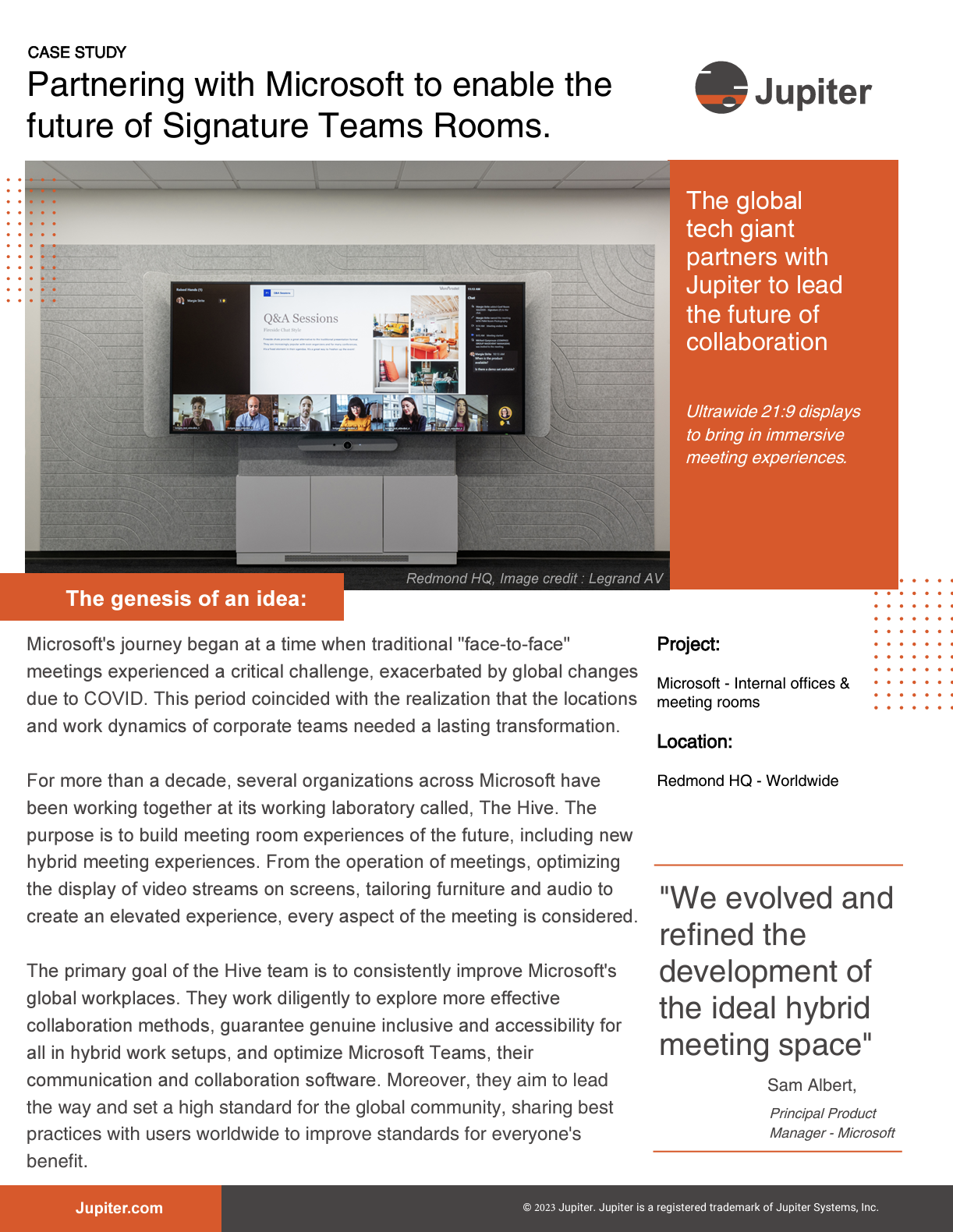
Sponsored Content from Jupiter
Nobody can predict the future, and certainly not what was to happen in March 2020. As it turned out, the pandemic created an immediate need for significantly better communications and collaboration hardware and software to facilitate productive hybrid meetings.
Timing is everything, and the fact that in 2018, video processing company Jupiter Systems already had its 21:9 Pana displays on the drawing board with gen-one models shipping by mid-2020 was kismet.
Jupiter's Justin Shong, vice president of sales and marketing and general manager shared that bringing the ultrawide 21:9 aspect ratio to businesses was a passion for Sidney Rittenberg, CEO of Jupiter. As a college student majoring in film production, Rittenberg experienced the immersive Mugar Omni IMAX Theater in Boston's Museum of Science.
"But it wasn't until recently that it was feasible to build and bring a 21:9 to market at an affordable price point," said Shong.
Before joining Jupiter, Justin Shong worked with an integration company that would block off streets, rent cranes, and remove windows to fit 86- and 98-inch 16:9 displays into conference rooms. A bonus of the 21:9 format is that it fits nicely into an elevator.
Where There's a Need, There's a Way
"The 21:9 Pana was designed with collaboration equity in mind," said Shong. Collaboration software and platforms have become more intuitive. The ultrawide 105-inch and 81-inch Pana displays allow for an interactive and immersive experience utilizing the entire display. "We wanted something where it doesn't matter if you're five foot tall or seven foot tall, you can reach it," Shong added. "You can access every pixel on the screen."
During the past few years, it has become critical to collaborate on content not only with participants in the meeting but also with hybrid workers. "If the platform you're using is smart enough, you can have two people working on the same monitor at the same time, either with a split screen or with a single window, and picking up the pen from one person and the touch from the other person," Shong said. Additionally, the ultrawide format allows participants to work on content at the display or via screen sharing while also seeing and collaborating with remote participants, creating a truly interactive and collaborative experience.
"Microsoft's Front Row, Zoom, Barco's ClickShare, and other collaboration platforms are optimized for 21:9," Shong added.
The Right Place the Right Time

The pandemic had every company, from small businesses to global enterprises, figuring out how to facilitate hybrid meetings that were efficient and effective. Jupiter has a lot of emergency services clients, so during the pandemic, most Jupiter employees went into the office. But they had a new tool at their disposal—the 105-inch Pana. "The Pana allows people to be more productive because it's more immersive," Shong added. "And because your experience is better, meetings are shorter, and collaboration is more effective. You've got this new tool that enables you to be more successful so those two or three days a week you're in the office are much more productive."
Microsoft also went to work creating a better hybrid experience but had some tools of a different kind—its Teams platform and an internal working group called The Hive, which focuses on effective collaboration methods.
Microsoft and Jupiter partnered to create an enhanced hybrid experience for the Teams platform. This effort led to the design of Microsoft Signature Teams Rooms with a Front Row layout tailored for ultrawide enterprise displays. Microsoft deployed Signature Teams Rooms in its offices worldwide, which included standard meeting rooms for executive offices and extended to remote branches.
Gen-three and Counting
Given Jupiter led the 21:9 curve, the third generation of Pana's is already in mass production. "The gen-three 21:9, 5K panel is 120Hz with 2,300 mini-LED dimming zones, quantum dot, and the visual quality is better than OLED," Shong said. "All of the internal hardware is ours, built to our specifications. We build all the integrated circuit boards, including the scaler, the power, the backlight, and the backlight algorithms. Something has to drive those 2,300 zones," he said.
"We're going to give them spectacular quality in their conferencing environments and allow them to really drive the experience to the next level. That has been our evolution and is why we continue to lead the market because that's our history.
Oh, we’ve got the fourth generation on the drawing board right now," Shong concluded.

For more information about Jupiter’s evolution, its products, and how it’s helping businesses modernize and invigorate their work spaces one display at a time, please visit www.jupiter.com.







